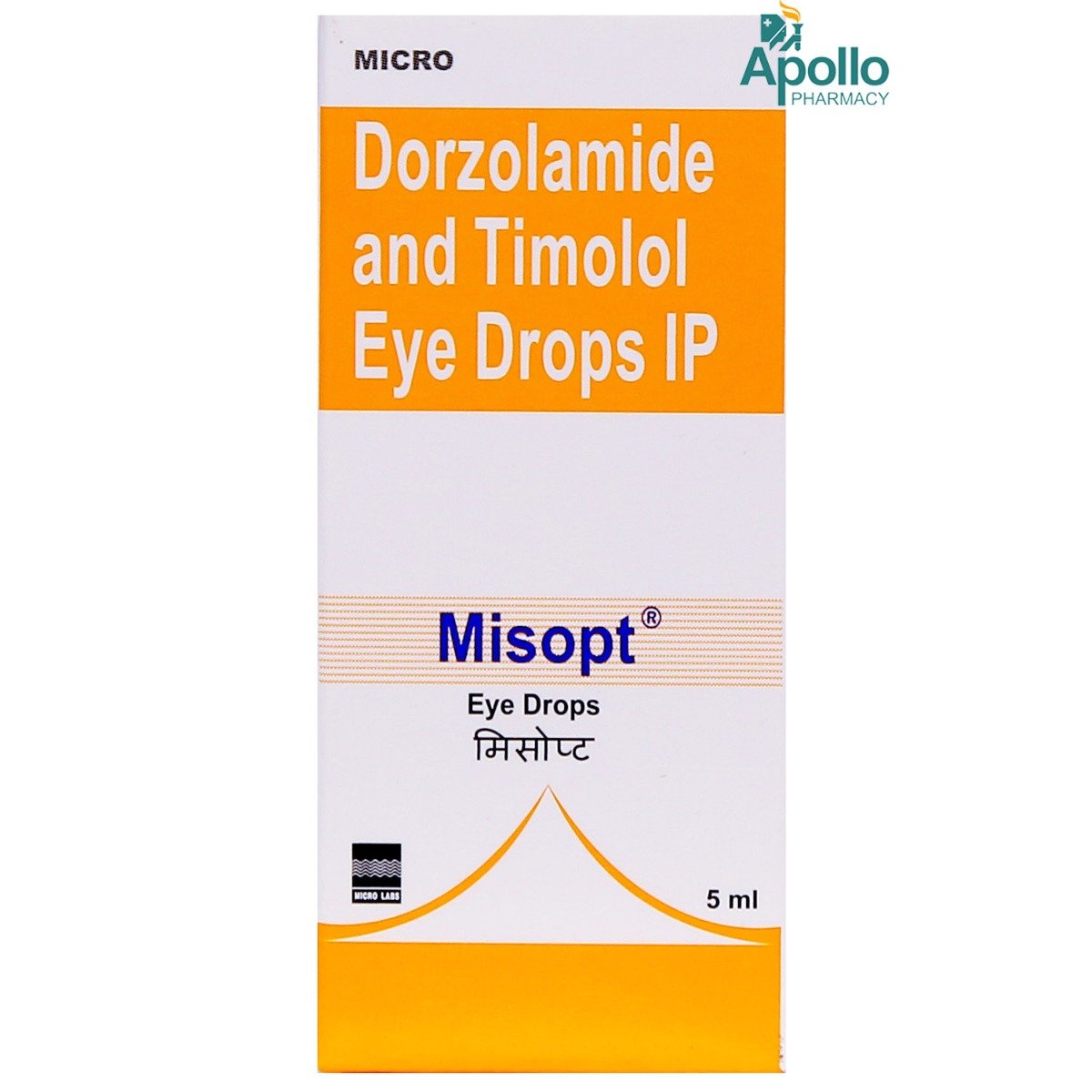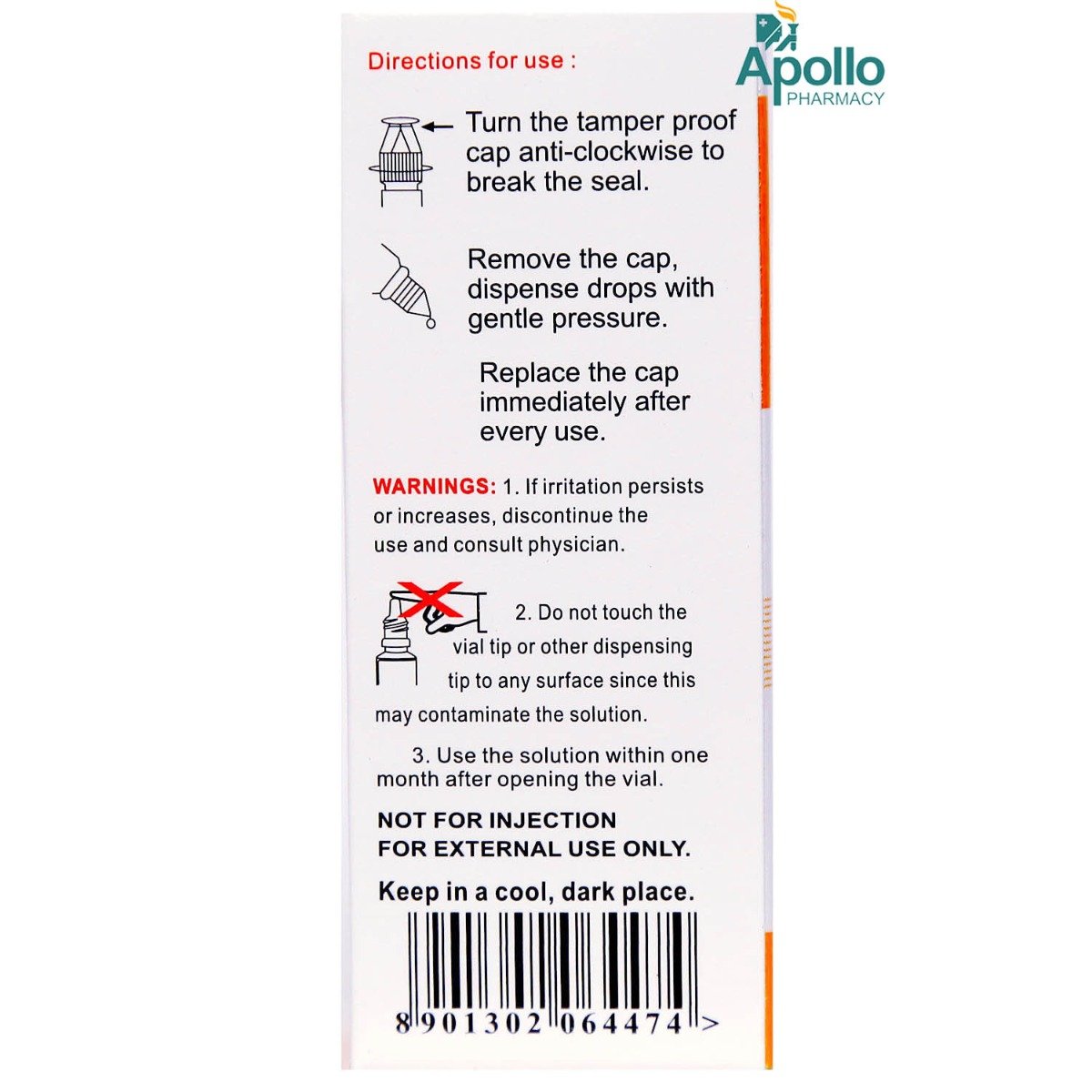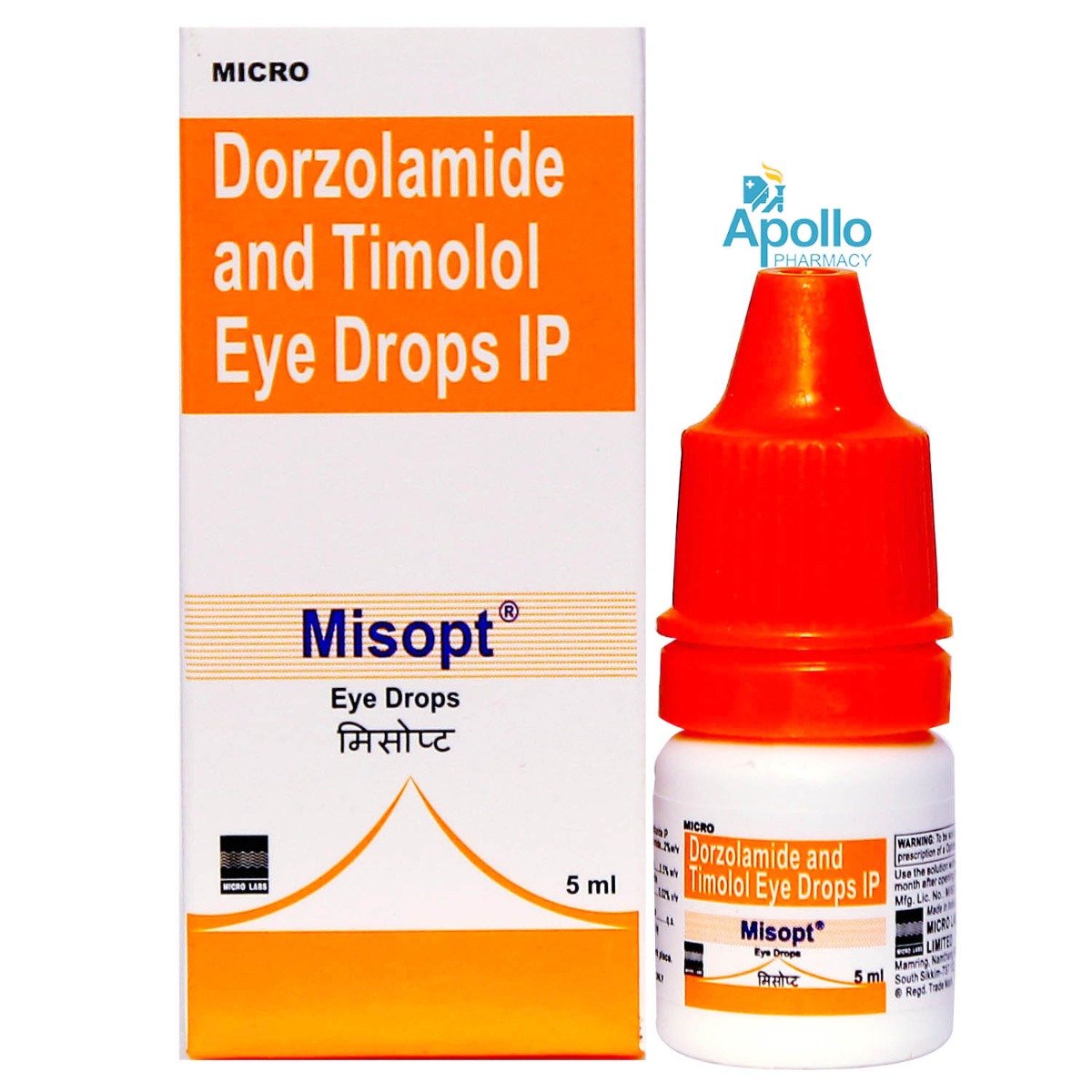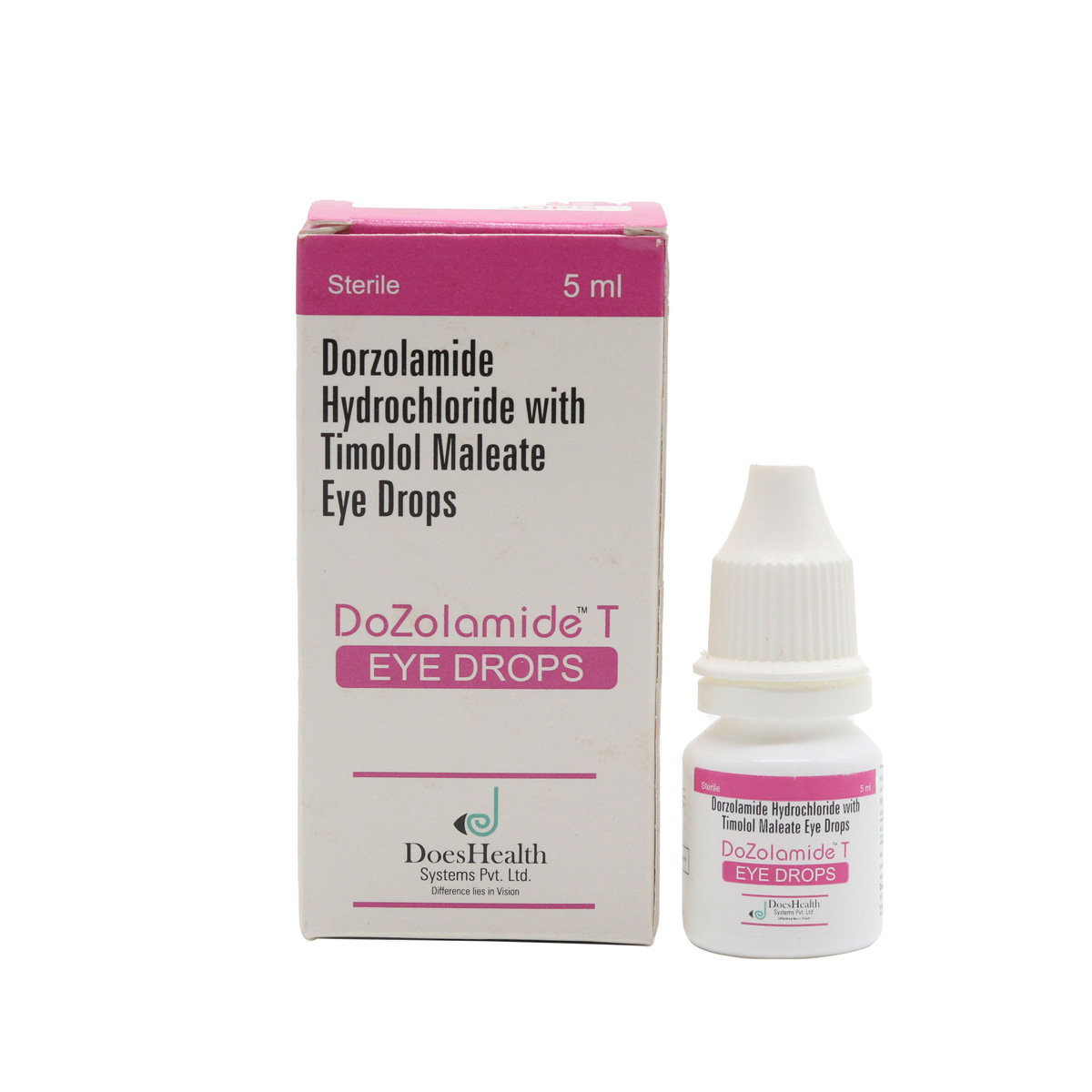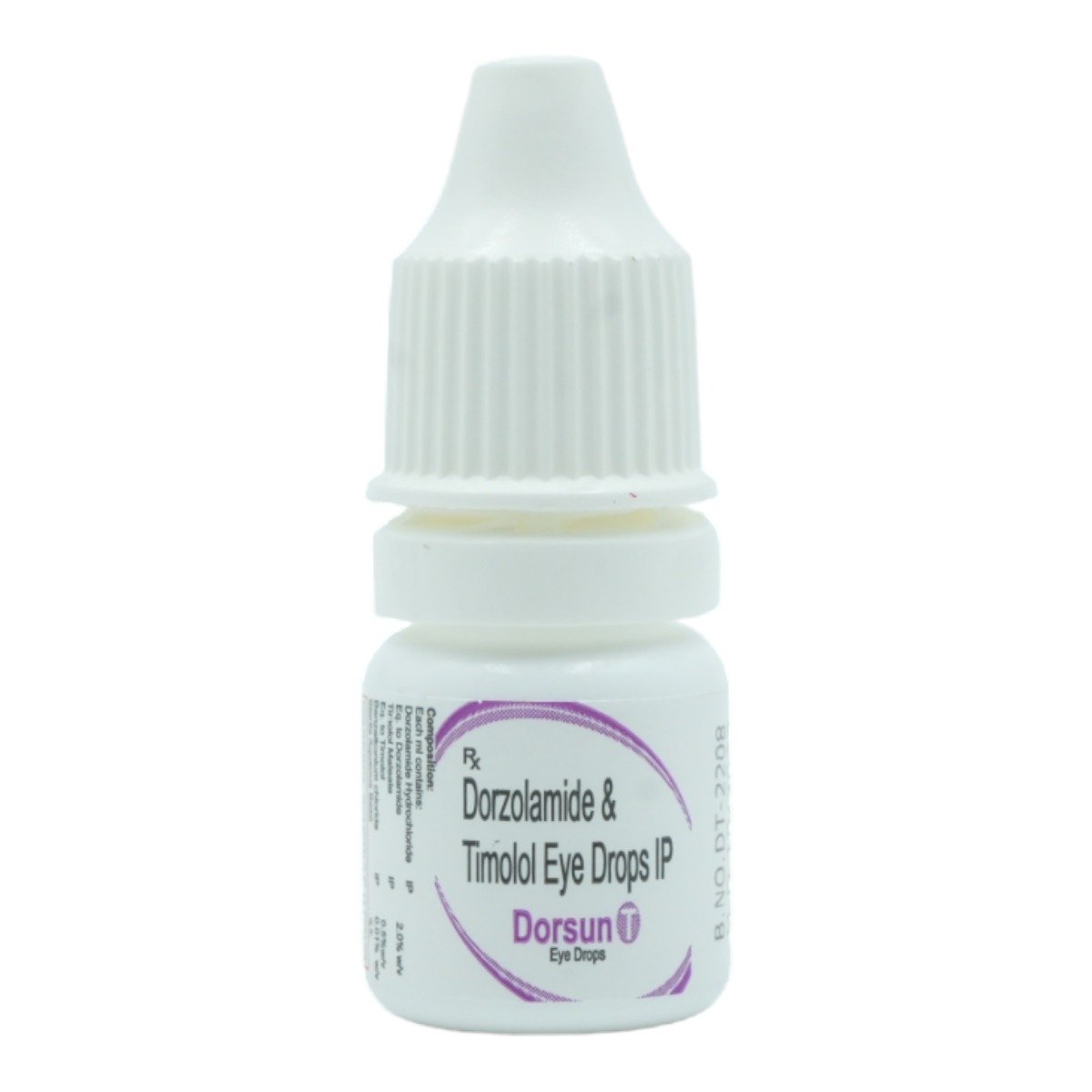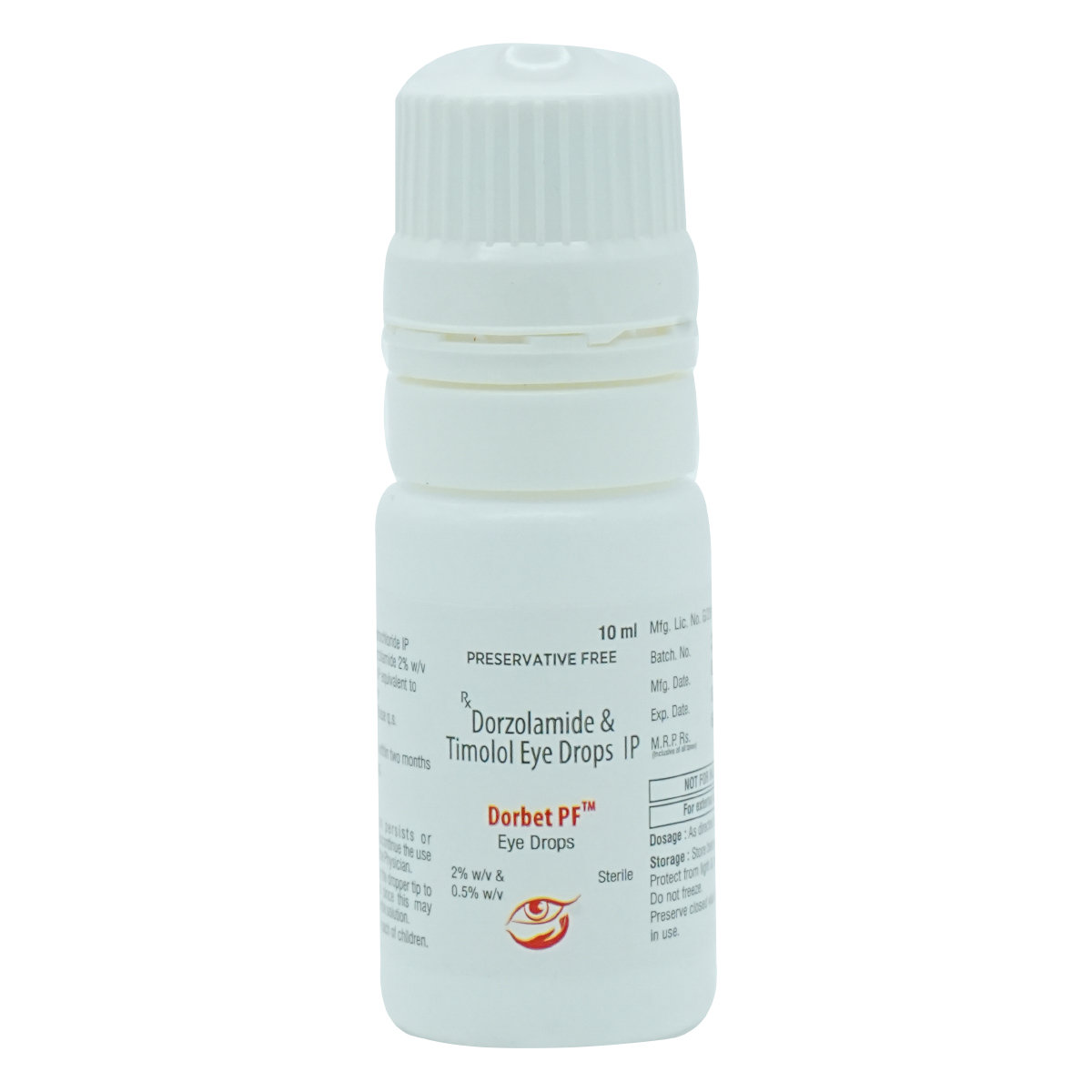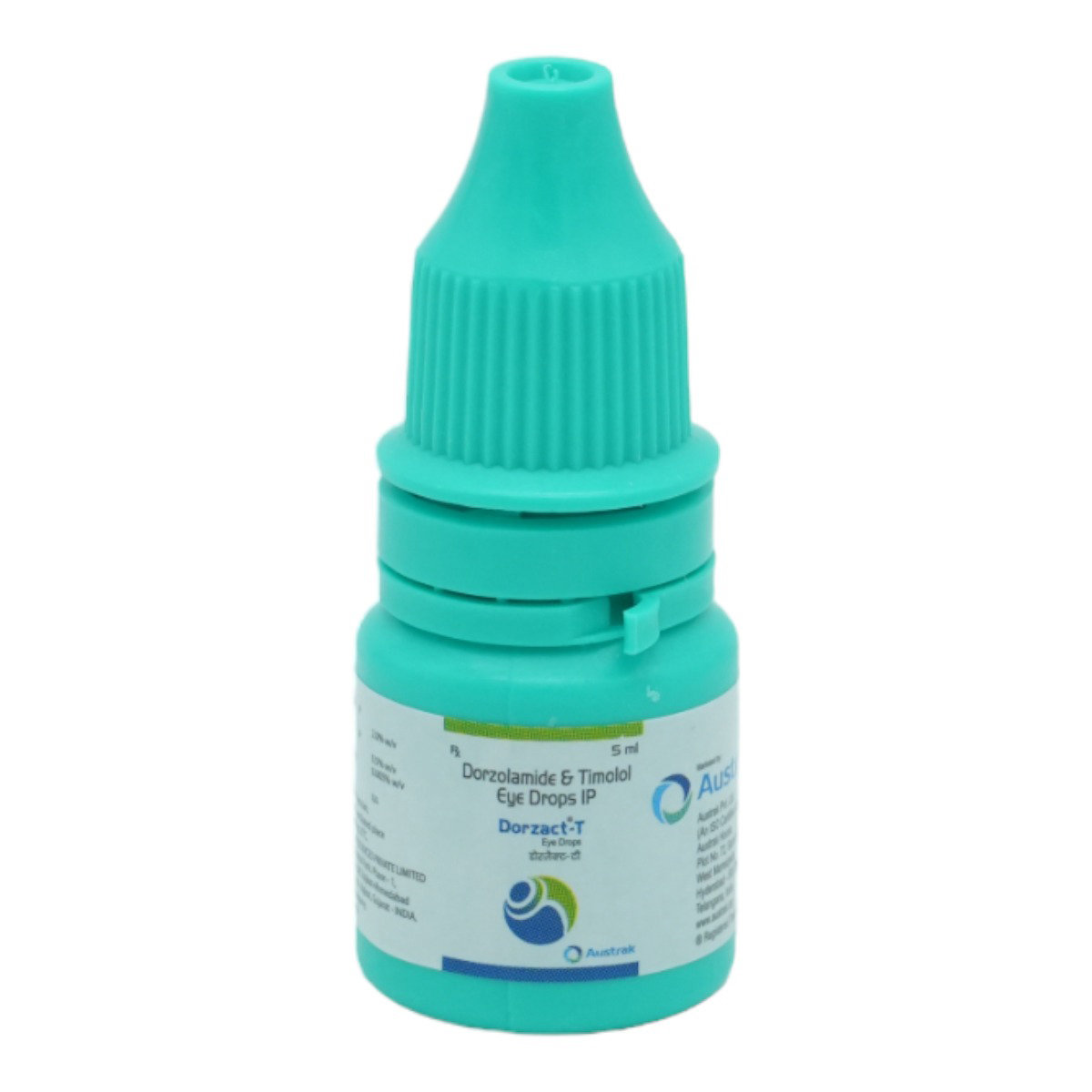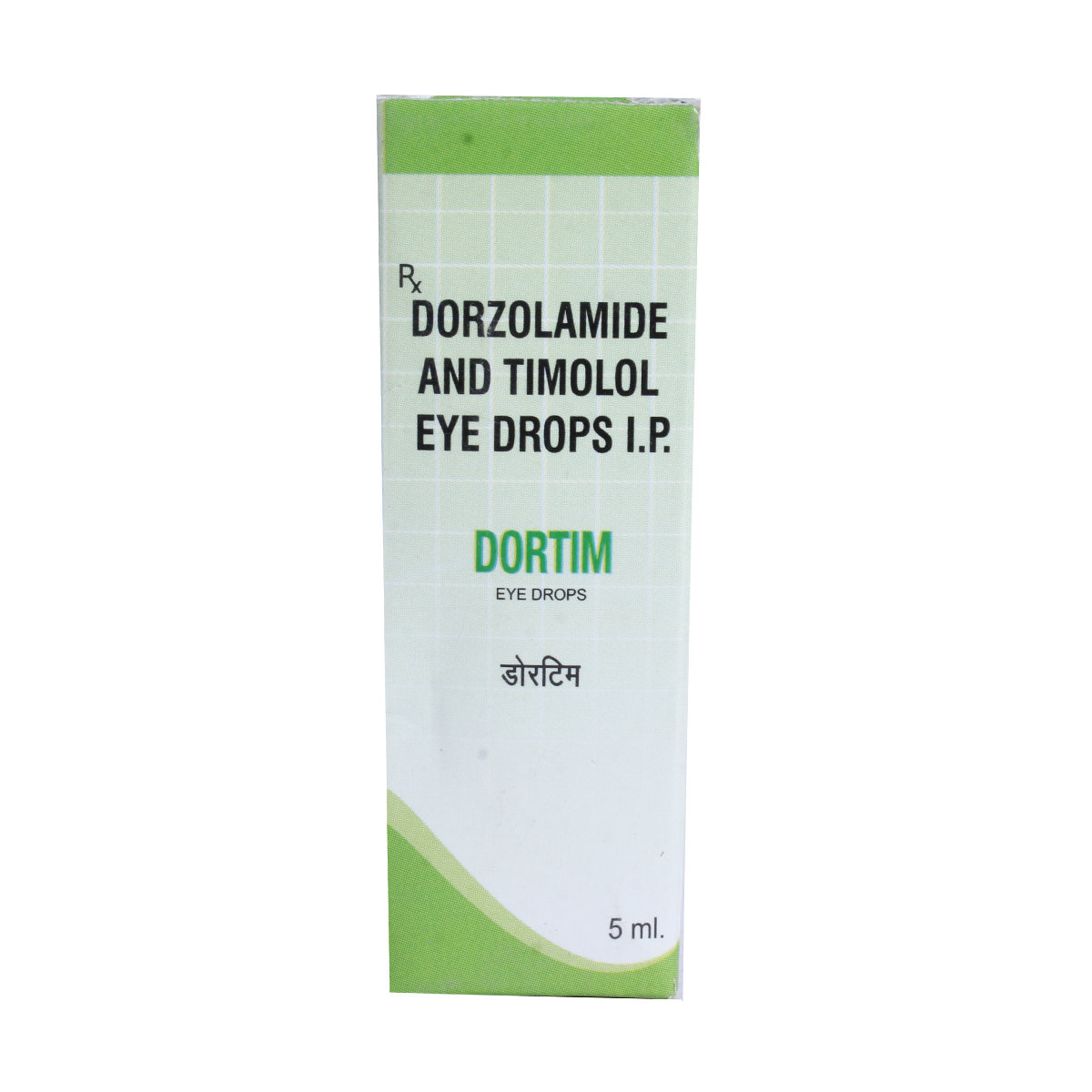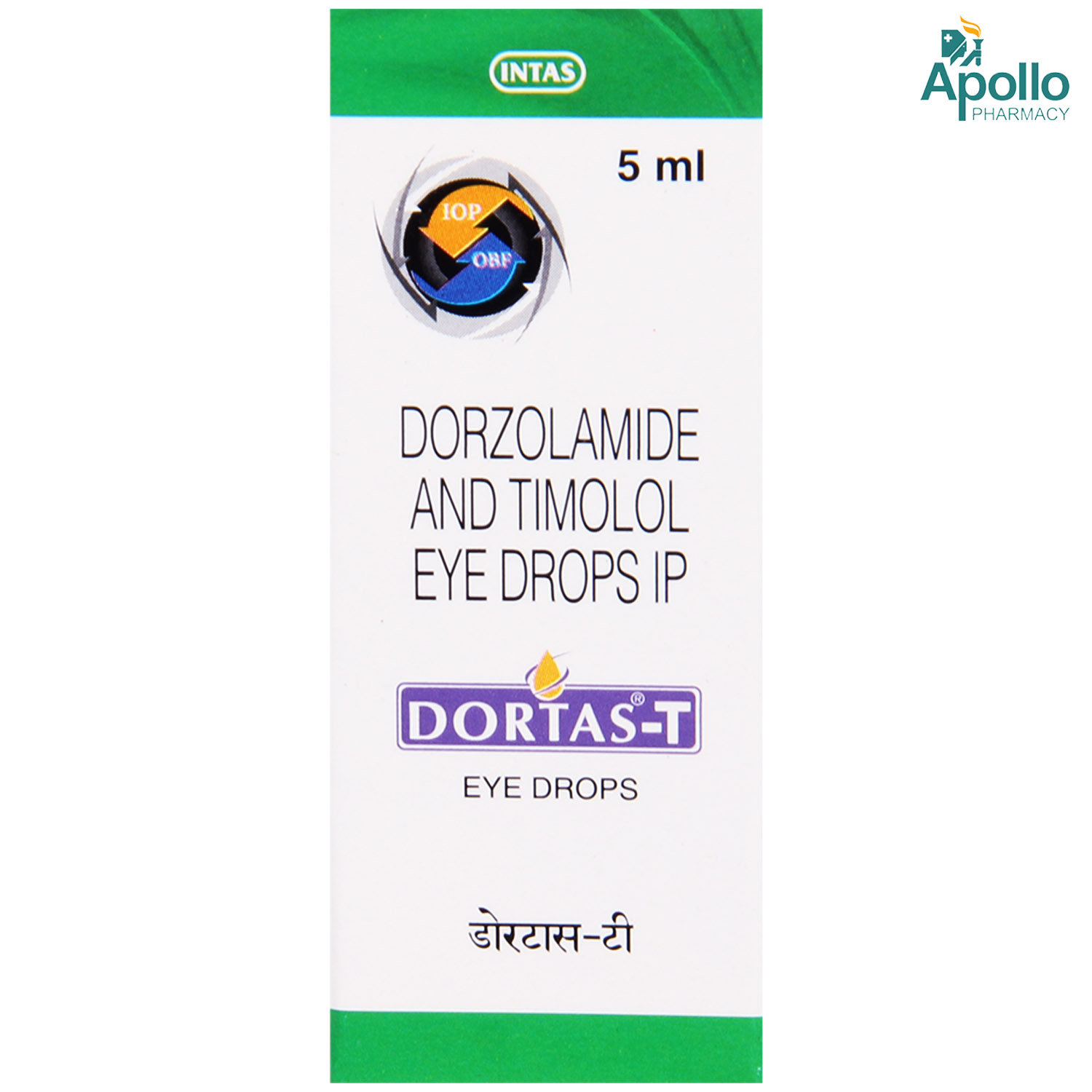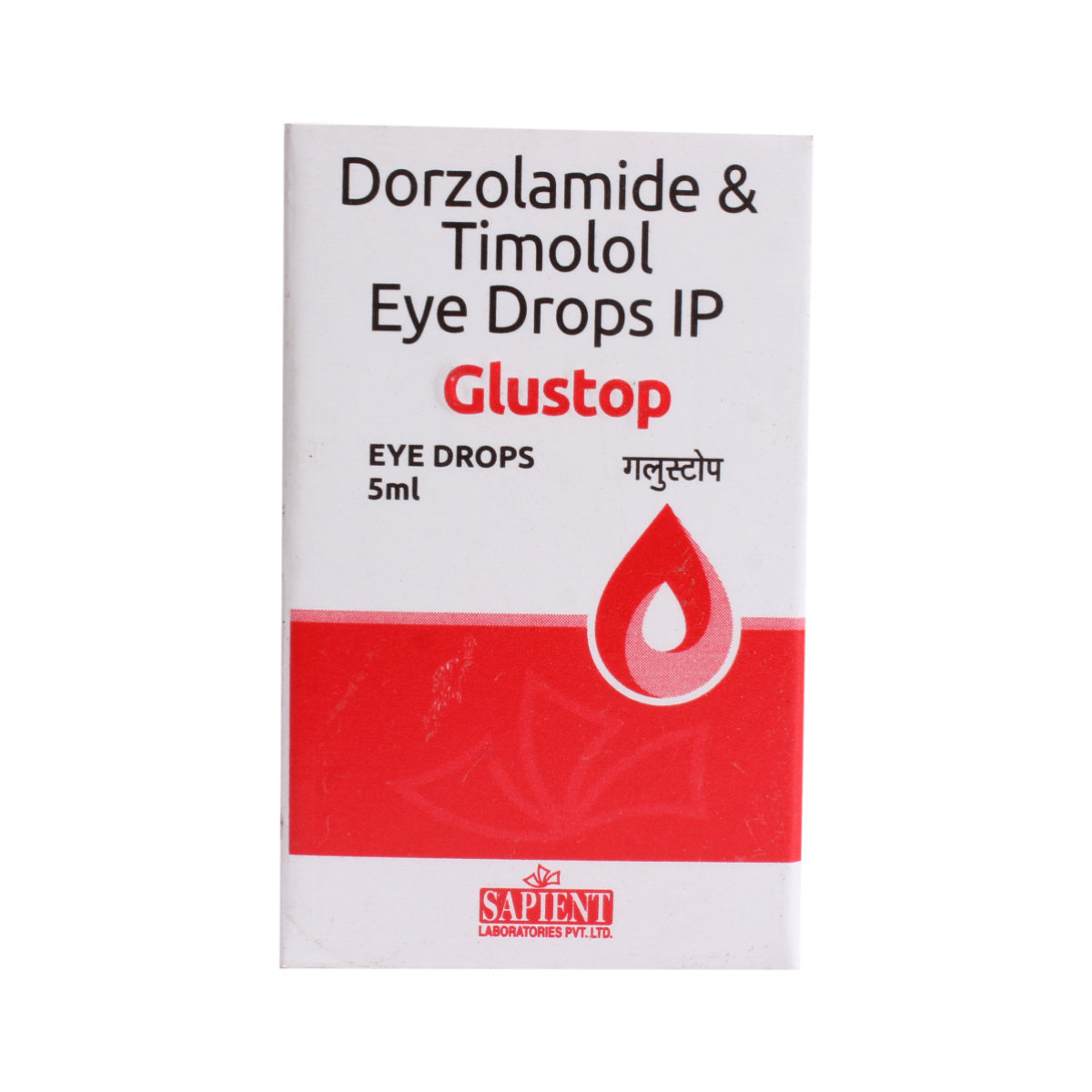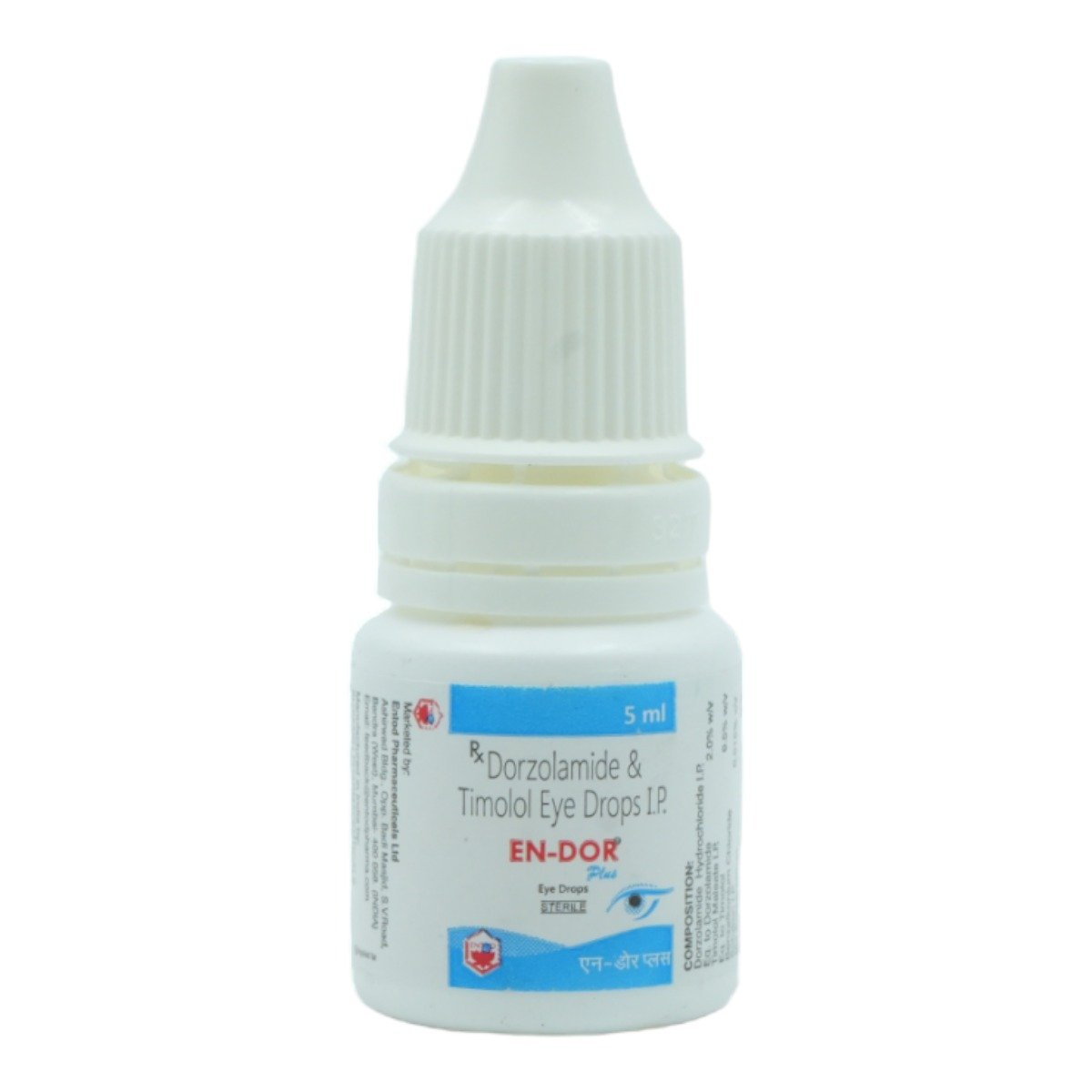Misopt Eye Drops 5 ml
MRP ₹527.5
(Inclusive of all Taxes)
₹79.1 Cashback (15%)
Provide Delivery Location
Online payment accepted
 Prescription drug
Prescription drugWhats That
Composition :
Manufacturer/Marketer :
Consume Type :
Expires on or after :
Return Policy :
About Misopt Eye Drops 5 ml
Misopt Eye Drops 5 ml belongs to anti-hypertensive combination medication called antiglaucoma agents, primarily used to treat open-angle glaucoma and ocular hypertension (high pressure in the eyes). Misopt Eye Drops 5 ml is generally used when no other medication effectively treats glaucoma or ocular hypertension. Glaucoma is an eye condition that causes damage to the optic nerve (essential for good vision) due to abnormally increased pressure in the eye. Ocular hypertension is increased pressure in the eye due to poor drainage of aqueous humour (fluid in the eye that maintains normal pressure by its continuous flow).
Misopt Eye Drops 5 ml contains Dorzolamide and Timolol. Dorzolamide is a topical carbonic anhydrase inhibitor, and Timolol is a topical beta-blocker. Both help decrease the secretion of aqueous humour (natural fluid present in the eye) by the eye's ciliary body, thereby causing a decrease in eye pressure.
Misopt Eye Drops 5 ml is taken with or without food in a dose and duration as advised by the doctor. The doctor will adjust your dose according to your condition and response to the medicine. In some cases, you may experience itching, stinging sensation, burning sensation in the eye, redness, blurred vision, tiredness, drowsiness, headache and dryness in the mouth. Most of these side effects of Misopt Eye Drops 5 ml do not require medical attention and gradually resolve over time. However, if the side effects are persistent, reach out to your doctor.
Try not to stop taking this medicine of your own. You should not use Misopt Eye Drops 5 ml without consulting your doctor if you have an eye infection, allergies, closed-angle glaucoma, thyroid diseases, asthma, chronic obstructive pulmonary disease (COPD), heart, liver and kidney diseases, diabetes, high or low blood pressure, depression, Raynaud's phenomenon (numbness in various parts of the body) and slow heartbeats that make you faint. Using Misopt Eye Drops 5 ml during breastfeeding is unsafe since Timolol can pass into breast milk and harm a nursing baby. Check with your doctor before using Misopt Eye Drops 5 ml if you are pregnant, breastfeeding, or taking other prescribed or non-prescribed medicines. If you use more than one ophthalmic drug, install each medication with a five-minute gap.
Uses of Misopt Eye Drops 5 ml
Directions for Use
Key Benefits
Misopt Eye Drops 5 ml is an ophthalmic medication. It effectively treats open-angle glaucoma and ocular hypertension (high eye pressure). Misopt Eye Drops 5 ml consists of Dorzolamide and Timolol in the form of ophthalmic solution (eye drops). Dorzolamide is a topical carbonic anhydrase inhibitor, and timolol is a topical beta-blocker. Both help decrease the secretion of aqueous humour (natural fluid present in the eye) by the ciliary body in the eye, thereby causing a decrease in eye pressure.
Storage
- Burning sensation is an abnormal side effect that needs medical attention. To relieve the burning feeling, your doctor may prescribe painkillers or antidepressants.
- Focused exercises can improve strength and reduce burning by soothing muscles.
- Change in lifestyle and improving nutrition can reduce the causes of burning sensation and provide relief.
- Your doctor may suggest nerve block injections as it is related to sensation in the skin.
- Burning feeling in a specific area would need mild electrical currents to reduce pain that targets the nerve affected. This practice must be done only if your doctor mentions it.
- Regularly brush and floss your teeth.
- Rinse your mouth with water and baking soda a solution to neutralize acid in the mouth. This makes your food taste as it should.
- Drink plenty of water or non-caffeinated drinks to prevent dry mouth which may lead to altered taste.
- Try ginger, peppermint, fruit or green teas, lemonade, ginger ale or fruit juice to help mask unpleasant tastes.
- Try sucking on sugar-free ice pops or ice cubes to prevent dry mouth.
- Apply lubricating eye drops regularly and thicker ointment at bedtime to maintain moisture.
- Avoid rubbing your eyes to prevent worsening the erosion and promoting healing.
- Wear an eye patch or bandage contact lens as recommended by your doctor for added protection.
- Use antibiotic eye drops or ointment to prevent infection and promote a healthy recovery.
- Use anesthetic eye drops as prescribed by your doctor to alleviate pain and discomfort.
- Include omega-3 fatty acid-rich foods like salmon, flaxseeds, or walnuts in your diet to support eye health.
- Eat antioxidant-rich foods like leafy greens, berries, or nuts to reduce inflammation and promote healing.
- Seek immediate medical attention from an ophthalmologist if you suspect a corneal erosion for proper diagnosis and treatment.
- Avoid wearing contact lenses until your cornea has fully healed to prevent further irritation.
- Investigate underlying causes like dry eyes or corneal dystrophies if you experience recurrent corneal erosions to address the root issue.
- Identify and avoid allergens like pollen, pet dander, dust mites, or certain cosmetics.
- Keep your environment clean and dust-free.
- Keep your hands clean by washing them frequently, especially before touching your eyes.
- Remove contact lenses if you wear them and give your eyes a break.
- Get enough sleep and maintain good eye hygiene.
- See a doctor if you experience severe eye itching, vision changes, persistent symptoms, or suspect an infection, characterized by intense redness, swelling, discharge, or blurred vision.
- Include omega-3 rich foods like fatty fish such as salmon, tuna, sardines, and mackerel.
- Eat vitamin A-rich foods like carrots, sweet potatoes, spinach, and apricots.
- Consume antioxidant-rich foods like fruits, vegetables, nuts, and leafy greens.
- Include zinc-rich foods like oysters, beef, beans, nuts, and dairy products.
- Stay hydrated by drinking plenty of water.
- Use a humidifier to add moisture to the air especially in dry weather.
- Practice good eyelid hygiene by gently cleansing with warm compresses and baby shampoo.
- Avoid irritants by minimizing exposure to smoke, dust, wind, and harsh chemicals.
- Wear sunglasses to protect your eyes from UV rays and wind.
- Quit smoking as it is significantly linked to dry eye disease.
- Consult your doctor if you experience persistent tearing or dry eyes for proper diagnosis and treatment.
Drug Warnings
Do not take Misopt Eye Drops 5 ml if you are allergic to Misopt Eye Drops 5 ml or any of its ingredients. Before taking Misopt Eye Drops 5 ml, let your doctor know if you have a history of eye infection, allergies, closed-angle glaucoma, thyroid diseases, asthma, chronic obstructive pulmonary disease (COPD), heart, liver, and kidney diseases, diabetes, high or low blood pressure, depression, Raynaud's phenomenon (numbness in various parts of the body), and slow heartbeats that make you faint. Regular monitoring of blood sugars may mask the signs and symptoms of acute hypoglycaemia. Using Misopt Eye Drops 5 ml during breastfeeding is unsafe since Timolol can pass into breast milk and harm a nursing baby. Let your doctor know if you use other over-the-counter medications, herbal and vitamin supplements before taking Misopt Eye Drops 5 ml.
Drug-Drug Interactions
Drug-Drug Interactions
Login/Sign Up
Taking Misopt Eye Drops 5 ml and Sodium salicylate together can increase the risk of side effects.
How to manage the interaction:
Although taking Misopt Eye Drops 5 ml and Sodium salicylate together can evidently cause an interaction, it can be taken if your doctor has suggested it. However, if you experience ringing in your ears, headache, feeling sick, feeling dizzy, confusion, or a fever, contact your doctor right away. Do not stop using any medications without first talking to your doctor.
Taking Misopt Eye Drops 5 ml with salsalate can increase the risk of side effetcs.
How to manage the interaction:
Taking Misopt Eye Drops 5 ml with Salsalate together can result in an interaction, but it can be taken if your doctor has advised it. However, if you experience a ringing sound in your ears, a headache, sickness, dizziness, or a fever, make sure to contact your doctor right away. Do not stop using any medications without a doctor's advice.
Taking aspirin with Misopt Eye Drops 5 ml may increase the risk of side effects.
How to manage the interaction:
Although there is a possible interaction between aspirin and Misopt Eye Drops 5 ml, you can take these medicines together if prescribed by a doctor. However, if you experience symptoms such as ringing in your ears, headache, nausea, vomiting, dizziness, confusion, or fever, contact a doctor immediately. Do not stop using any medications without consulting a doctor.
Coadministration of Misopt Eye Drops 5 ml and choline salicylate may increase risk of side effects.
How to manage the interaction:
Although taking Misopt Eye Drops 5 ml and choline salicylate together can result in an interaction, they can be taken together if prescribed by a doctor. However, if you experience any symptoms such as headache, vomiting, dizziness, rapid breathing, or fever, consult a doctor immediately. Do not stop using any medications without consulting a doctor.
Coadministration of Misopt Eye Drops 5 ml with Diflunisal may cause ringing in the ears, nausea, headache, vomiting, confusion, dizziness, rapid breathing, fever, hallucinations, or seizure (fits).
How to manage the interaction:
Taking Misopt Eye Drops 5 ml and diflunisal together can result in an interaction, but they can be taken together if prescribed by a doctor. Do not stop using any medications without first talking to your doctor.
Co-administration of Clonidine and Misopt Eye Drops 5 ml together may lower the blood pressure.
How to manage the interaction:
Although there is a possible interaction between Clonidine and Misopt Eye Drops 5 ml, you can take these medicines together if prescribed by your doctor. However, if you experience headaches, slow heartbeat, dizziness, or feeling like you might pass out, contact a doctor. Do not discontinue any medications without consulting a doctor.
Co-administration of atazanavir with Misopt Eye Drops 5 ml can increase the risk of irregular heart rhythm.
How to manage the interaction:
Although taking atazanavir and Misopt Eye Drops 5 ml together can possibly result in an interaction, it can be taken if your doctor has advised it. However, if you experience symptoms such as sudden dizziness, lightheadedness, fainting, or irregular heartbeat consult a doctor immediately. Do not discontinue any medications without consulting a doctor.
Co-administration of Salmeterol with Misopt Eye Drops 5 ml can decrease the action of both the medications, can increase the risk or severity of side effects including increased risk of asthma, breathing problems.
How to manage the interaction:
Although taking salmeterol and Misopt Eye Drops 5 ml together can possibly result in an interaction, it can be taken if your doctor has advised it. However, if you experience any unusual symptoms consult a doctor immediately. Do not discontinue any medications without consulting a doctor.
Co-administration of Pirbuterol with Misopt Eye Drops 5 ml can decrease the action of both the medications, can increase the risk or severity of side effects including increased risk of asthma, breathing problems.
How to manage the interaction:
Although taking pirbuterol and Misopt Eye Drops 5 ml together can possibly result in an interaction, it can be taken if your doctor has advised it. However, if you experience any unusual symptoms consult a doctor immediately. Do not discontinue any medications without consulting a doctor.
Co-administration of ceritinib with Misopt Eye Drops 5 ml can increase the risk of irregular heart rhythm.
How to manage the interaction:
Although taking certinib and Misopt Eye Drops 5 ml together can possibly result in an interaction, it can be taken if your doctor has advised it. However, if you experience symptoms such as dizziness, lightheadedness, fainting, or irregular heartbeat, consult a doctor immediately. Do not discontinue any medications without consulting a doctor.
Drug-Food Interactions
Drug-Food Interactions
Login/Sign Up
Diet & Lifestyle Advise
- Take the medication as directed by the doctor and at regular intervals. Do not use other over-the-counter medicines, herbal or vitamin supplements without informing your pharmacist or doctor when you take Misopt Eye Drops 5 ml.
- Try to maintain good hygiene to keep your eyes clean and irritant-free.
- Do not rub your eyes even though some ophthalmic drugs make your eye itchy.
- Lowering your salt intake can help with fluid retention.
- Wash your hands thoroughly, and do not touch the dropper before using drops to avoid contamination.
Side Effects of Misopt Eye Drops 5 ml
- Itching, stinging sensation
- Burning sensation in the eye
- Redness
- Blurred vision
- Tiredness, drowsiness
- Headache
- Dryness in the mouth
- Taste change
Habit Forming
Therapeutic Class
All Substitutes & Brand Comparisons
RX
Dozolamide T Eye Drops 5 ml
Does Health Systems Pvt Ltd
₹218
(₹39.24/ 1ml)
58% CHEAPERRX
Dorsun T Eye Drops 5 ml
Sunways (India) Pvt Ltd
₹237
(₹42.66/ 1ml)
55% CHEAPERRX
Doze-T Eye Drop 5 ml
Raymed Pharmaceuticals Ltd
₹298
(₹53.64/ 1ml)
43% CHEAPER
Drug-Diseases Interactions
Drug-Diseases Interactions
Login/Sign Up
FAQs
Drug-Drug Interactions Checker List
- CLONIDINE
- RESERPINE
- AMLODIPINE
- NIFEDIPINE
- DILITAZEM
- METOPROLOL
- VERAMAPIL
- DIGOXIN
- PAROXETINE
- FLUOXETINE
- QUINIDINE
- ADRENALINE
- ASPIRIN
- ACETAZOLAMIDE
- DICHLOROPHENAMIDE
- TOPIRAMATE
- SODIUM SALICYCLATE
Special Advise
- Misopt Eye Drops 5 ml should be used with extreme caution in children, and if you notice abnormal breathing, wheezing, coughing or unusual pauses in breathing, stop using Misopt Eye Drops 5 ml and consult a doctor immediately.
- If you have an injury to the eye or an eye infection, inform your doctor.
- You are advised to inform your doctor before any operation that you are using Misopt Eye Drops 5 ml as it may alter the effects of some medicines used during anaesthesia.
- Routine eye tests are recommended at least every two years to detect glaucoma, as it does not initially show any symptoms.
Disease/Condition Glossary
Glaucoma: Glaucoma is a common eye condition where the optic nerve, which connects the eye to the brain, becomes damaged. It's usually caused by fluid building up in the front part of the eye, which increases pressure inside the eye. Glaucoma can lead to vision loss if not diagnosed and treated early.
Open-angle glaucoma: Open-angle glaucoma is a life-long condition and the most common type of glaucoma. It is caused by the clogging of the drainage angle between the iris and cornea, which leads to the blockage of eye fluid and increases eye pressure.
Ocular hypertension: Ocular hypertension is the building up of pressure in the eye caused by poor drainage of the aqueous humour (fluid inside the eye that maintains normal pressure).

Have a query?
Alcohol
Safe if prescribed
The interaction of alcohol with Misopt Eye Drops 5 ml is unknown. However, it is advisable not to take or limit alcohol as a precautionary measure.
Pregnancy
Consult your doctor
Please consult your doctor if you are planning to become pregnant or already pregnant before starting Misopt Eye Drops 5 ml.
Breast Feeding
Consult your doctor
There is no information available on the usage of Misopt Eye Drops 5 ml while nursing. Please consult your physician.
Driving
Safe if prescribed
Misopt Eye Drops 5 ml may cause side effects like blurry vision, affecting your driving ability. Do not drive or operate machinery in such cases. Drive only when you are alert and have clear vision.
Liver
Consult your doctor
Let your doctor know if you have any history of liver diseases. Your doctor will weigh the benefits and potential risks before prescribing Misopt Eye Drops 5 ml.
Kidney
Consult your doctor
Let your doctor know if you have any history of kidney diseases. Your doctor will weigh the benefits and potential risks before prescribing Misopt Eye Drops 5 ml.
Children
Safe if prescribed
The dose may have to be adjusted by your doctor depending upon the condition of the children's disease and age.

